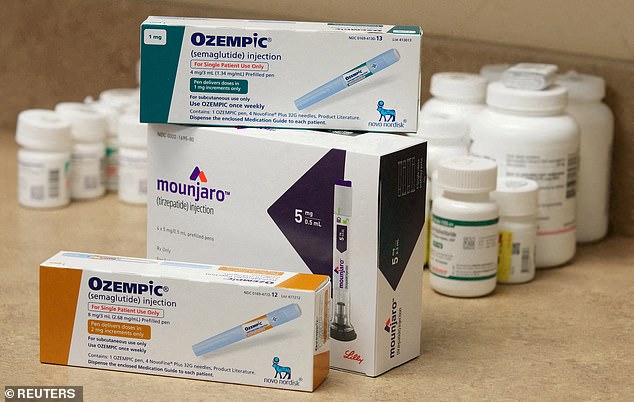Blockbuster weight loss jabs relied on by millions not be the quick fix many believe them to be, as users pile on the pounds within just eight weeks of stopping treatment, experts have warned.
More than a million people in the UK are now injecting themselves weekly with drugs such as Mounjaro and Wegovy—bought online or through private clinics—lured by promises of rapid results.
Known collectively as GLP-1s, the weekly injections can see users lose up to a fifth of their body weight in as little as a year, upending the obesity treatment playbook.
But now experts in metabolic medicine, from Peking University People’s Hospital, Beijing, have warned that the results are likely to be short-lived if patients do not maintain a healthy lifestyle after coming off the jabs.
Even those taking newer, more powerful jabs like Mounjaro were found to regain the weight once treatment was stopped.
The researchers, led by Professors Xiaoling Cai and Lingong Ji, found that even those on trizeparide—the so-called ‘King Kong’ of weight loss jabs, regained almost half the weight they had previously lost after coming off the drug and switching to a placebo.
Whilst the study, published in the journal BMC Medicine, didn’t explain exactly why people pile the weight back on so fast, the researchers speculated it could be due to a phenomenon known as ‘weight cycling.’
This refers to the process of regaining weight after stopping treatment, and can be due to a number of factors.

Once aimed at diabetes patients, Ozempic, Wegovy and Mounjaro are now famous for fast weight loss – reducing appetite and helping users slim down rapidly – but now experts say it may not be the quick fix millions were hoping for
One potential reason for rapid weight gain after coming off the jabs could be due to hormonal changes in the gut.
According to the researchers, previous studies with very low energy diets show that weight loss induces adverse hormonal changes in the gut that potentially affect weight regain after treatment.
‘This adverse hormonal change in the gut causes an increase in hunger levels and urge to eat, which promotes weight regain,’ Prof Cai explained.
Other experts, such as Professor Susan Jebb, who was not involved in the study, have speculated the post-treatment weight gain could simply be because diets are hard.
No self restraint is required when taking the drugs, so people don’t have effective ‘behavioural strategies in place’ when they stop taking them.
The injections trigger weight loss by mimicking the actions of a hormone released in the gut after eating called GLP-1.
As well as signalling to the pancreas to make more insulin, this hormone feeds back to the brain, stopping users from overeating.
The findings could raise issues for both the Government, which plans to roll out a new £85million weight loss jab trial involving tens of thousands of people offered the drug, and manufacturers such as Eli Lily who announced last week they are increasing the price of their products in the UK.
Despite many being eager to take the drugs, the revolutionary jabs are not without side effects, and as such currently only patients with a body mass index (BMI) over 30 and at least one weight-related health problem can qualify for treatment.
UK law forbids the sale of drugs such as Wegovy without a prescription from a medical professional.
Common side-effects include nausea, constipation and diarrhoea after taking the medication and many users have spoken out about struggling to keep the weight off after stopping the medication.
Some doctors have also warned they are seeing patients with serious, life-threatening complications including seizures, bowel obstructions and inflammation of the pancreas, known as pancreatitis.
Healthcare watchdog NICE currently advises that users should not be on the injections for more than two years.
Tam Fry, chairman of the National Obesity Forum, added: ‘It shouldn’t surprise anyone if people regain weight having used GLP-1 drugs without seriously attempting to improve their lifestyle.
‘Using GLP1-s is not the quick fix which many users believe it to be.’












